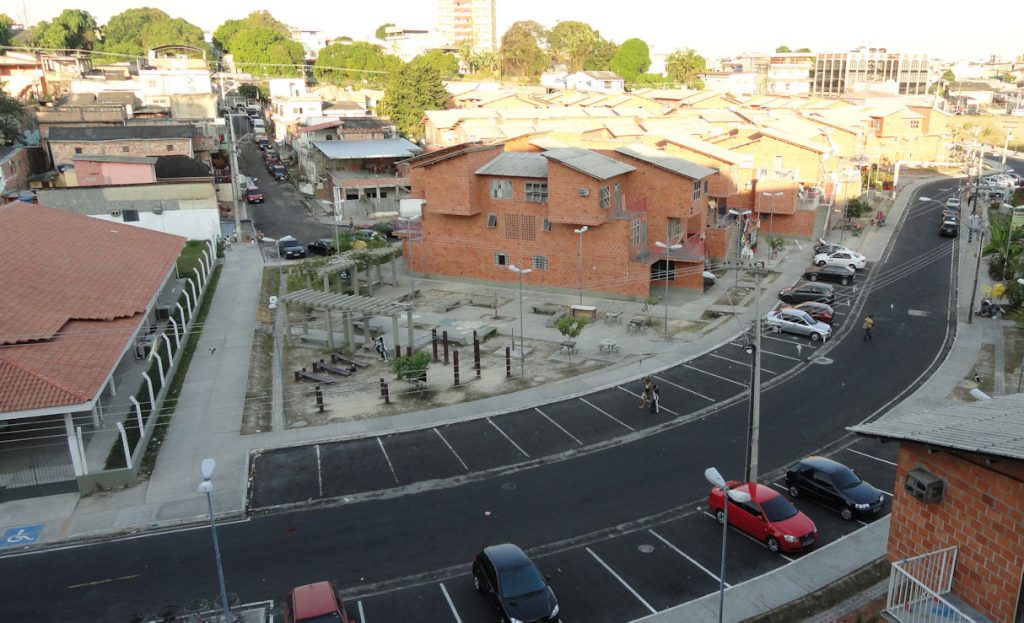
The picture you see above shows a successful outreach to a favela. It was not a big favela, but it was troublesome. I took the picture from the garage of our BNC in Manaus. The BNC folks told me that it used to be very dangerous being near the favela. People would climb up the wall, steal things or just vandalize property.
The BNC was happy when the city government decided to do some renewal. The street you see in the picture used to be an open stream, more of an open sewer. The water now passes under the road, which follows the old water course. The people get to stay in the simple but comfortable houses on condition of decent behavior and keeping their kids in school. There is evidently some provision for secure property rights, but the people I talked to didn’t know the details. Improving physical conditions followed by provisions that establish discipline and some kind of property rights or at least responsibility are the essential ingredients of stability. As we learned in the 1970s, just building houses for the poor does no good and may actually cause harm if it breaks down social bonds. Buildings are important components of communities but it is the human relationships that really count.
Speaking of relationships, the BNC also did its own outreach. They went down into the community, offering some scholarships but mostly just getting to know the people better. Today, they tell me that peace and harmony are more or less established in this particular corner of Brazil. It looks orderly and clean. Somebody is picking up the trash. That is a good sign.
In general, BTW, Manaus is a fairly clean city with significant numbers of trees along the streets. This complex doesn’t have many trees, but they seem to have made provision for parking.
